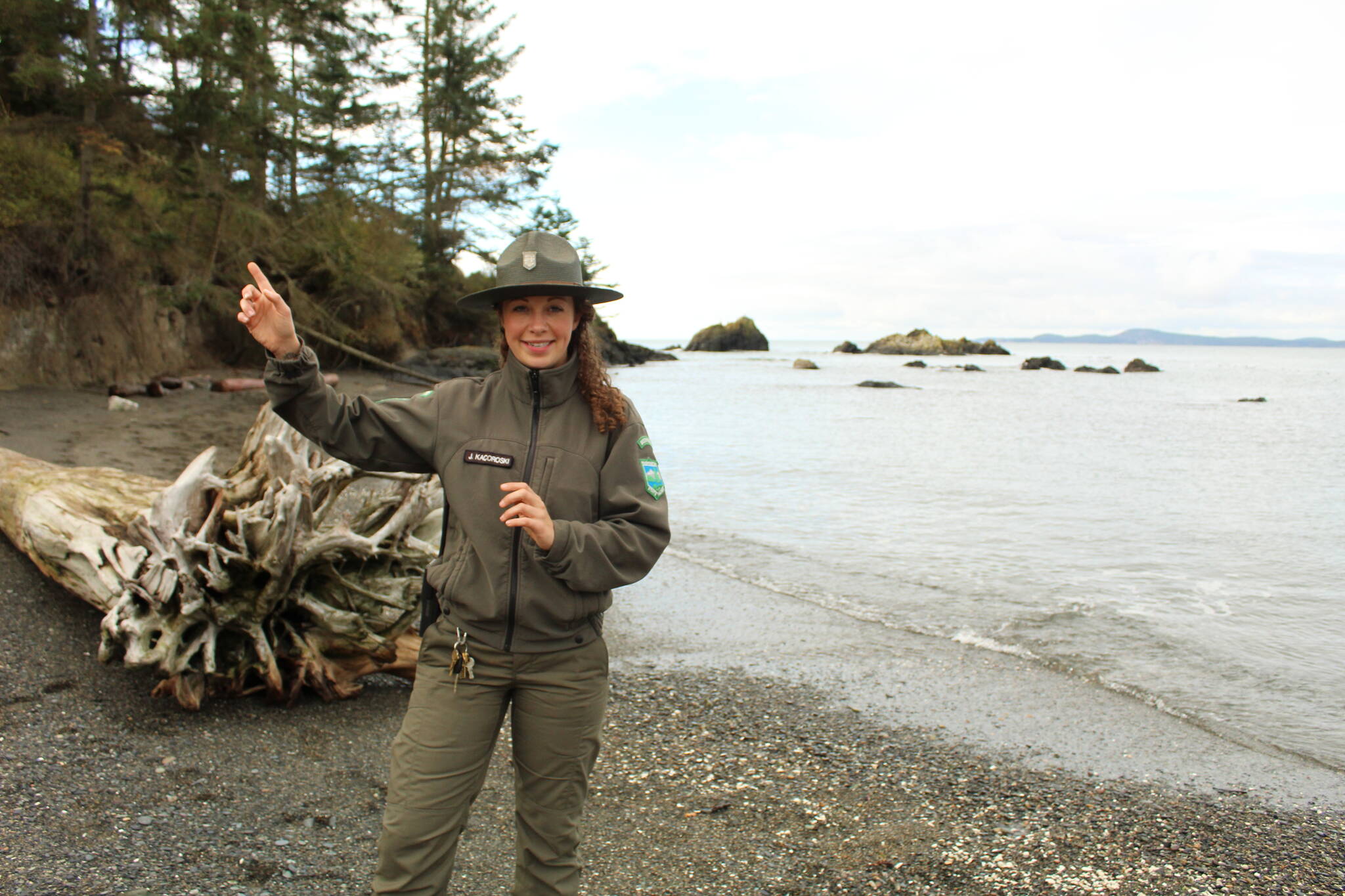All industries had to adapt to a virtual workspace during the pandemic, and state parks were no exception.
Though hiking, camping and other forms of outdoor recreation are typically conducted in person, Washington State Parks developed several online resources, both live and asynchronous, to allow Washington residents and people all over the continent to enjoy the great outdoors — and learn about park history and nature — from their own couches and classrooms.
Interpretive staff at Deception Pass and other state parks produced a series of pre-recorded virtual lessons throughout the pandemic. The videos covered topics ranging from how Deception Pass got its name, to the distinctions between river otters and sea otters found in the area.
The videos are designed especially for teachers to take their classrooms on remote field trips and engage them in discussion about park history and the state’s nature. Deception Pass is one of several select parks that also offered live virtual field trips this year.
Deception Pass interpretive specialist Joy Kacoroski is one of the park rangers who helped deliver and produce live virtual field trips this spring. She said it had long been a dream of hers to initiate virtual field trips to help reduce barriers to participation in parks education.
“There are so many students around the country who their teachers are struggling to be able to get buses for them to get into parks,” she said. “This idea of virtual programming opens up so many doors and opportunities.”
The park didn’t have the resources to implement Kacoroski’s vision, however, until the pandemic locked down the country.
The live field trips at the park featured the tide pools at Rosario Beach. Park rangers rebooted an old underwater camera and connected it to their tablets to give students a close up view into the tide pools and the many marine creatures which make their homes there.
The first live field trips took place in October 2020. Kacoroski said the virtual format allowed hundreds of students to participate at once, including students from distant schools that otherwise wouldn’t have been able to visit the park.
Kacoroski remembered one group of third graders who seemed to particularly enjoy the experience.
“You drop the camera underwater, and you just hear all these little gasps,” she said. “You could hear all their excitement back in their homes, and just how stoked they were to be able to see what it looks like underwater while they were at home, live.”
The park could only host a few live virtual field trips after its soft launch in October, because winter storms soon made live, outdoor recording impossible, but when the weather calmed down in the spring, Kacoroski estimated the park hosted around 70 live virtual field trips, reaching more than 5,000 students.
Students who participated in the live field trips lived all over the United States and Canada. Kacoroski said the park plans to launch virtual field trips again in the spring.
Though the live field trips at Deception Pass only took place at the Rosario Beach tide pools, pre-recorded videos available on the parks website feature several different areas of the park.
“We want to create park experiences and educational opportunities that are accessible to everyone,” said Interpretive Program Manager Ryan Karlson. “Our in-person programming is great and offers hands-on experience through educational programs. However, we know not every student can easily visit our parks. Geographic and socioeconomic barriers have kept youth from participating in the past. The new, virtual offerings help remove those barriers and provide easier access for interested students throughout the state. We’ve even been able to expand our reach and connect with individuals across the country.”
Accessibility isn’t the only benefit of increased virtual resources; increasing access to parks also promotes conservation and sustainability efforts.
“Folks don’t know what to protect, or they’re less likely to protect something if they haven’t experienced something or haven’t developed their own connections to something,” Kacoroski said. Both in-person and online field trips are an opportunity to instill in kids a desire and knowledge about how to protect the land.


